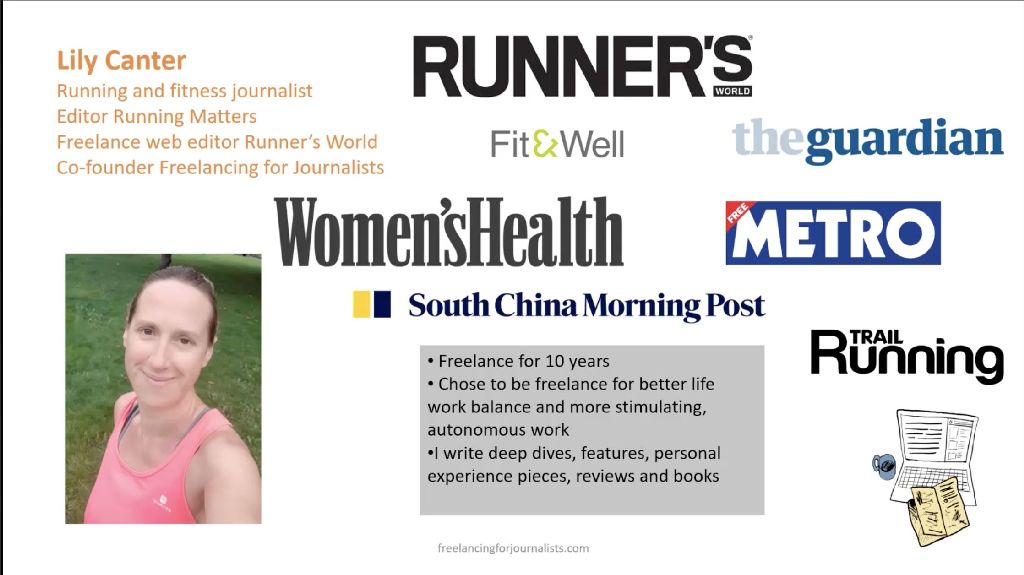The story is the key to pitching
LILY CANTER gave the London Freelance Branch Pitching Clinic on 24 May. Lily is a freelance running and fitness journalist and co-founder of the Freelancing for Journalists podcast, book, training and community.

Lily Canter's slide introducing herself
We discussed the challenges that freelance journalists face in establishing contact with magazine editors – and the strategies employed by participants to overcome these hurdles.
Key points
- Story is key: Your pitch needs a story with a precise angle and headline, not just a broad topic. This means you should have a clear narrative that engages the reader and a specific angle that sets your story apart from others on the same topic.
- Sell yourself and the story: Briefly explain your background and expertise relevant to the story. Highlight what makes your story exciting and timely.
- Targeted pitching: Research the publication and tailor your pitch to their audience and content style.
Crafting your pitch in the email
- Subject line: Use a strong, attention-grabbing headline that encapsulates your story idea.
- Email body: Briefly introduce yourself, include the headline again, summarise the story idea, and mention the sources. Sign off with detailed contact information.
- Repackaging ideas: one story idea can be repurposed into different formats for multiple publications.
- Pitch template: This template provides structure and direction, not a strict rule. It's designed to help you craft a compelling pitch that stands out to editors.
Challenges in editor contact
Participants expressed significant difficulties locating and contacting magazine editors. Traditional methods proved time-consuming and often unsuccessful.
Alternative Strategies
Attendees shared alternative approaches, including leveraging social media platforms, networking with other freelance journalists, and utilizing online resources.
Copyright concerns
The conversation highlighted the complexities surrounding copyright ownership for freelance journalists, particularly about digital content and potential legal implications. [See links below.]
Industry practices
Discussions extended to broader industry issues, such as standard pay rates, contract negotiations, and the importance of diversifying income streams for freelance journalists.
This analysis offers insights into the evolving landscape of journalism, particularly the challenges freelancers face in navigating the digital age. The discussion on copyright underscores the need for clear legal frameworks to protect the rights of freelance contributors. Additionally, the emphasis on diversifying income streams aligns with broader academic research on the precarious nature of freelance work.
The clinic provided valuable qualitative data on freelance journalists' experiences, offering insights that can inform and enlighten your pitching strategies.
 Some things you should know about copyright in just 1000 words
Some things you should know about copyright in just 1000 words
 Rights and why they are important Freelance Fees Guide
Rights and why they are important Freelance Fees Guide
![[Freelance]](../gif/fl3H.png)